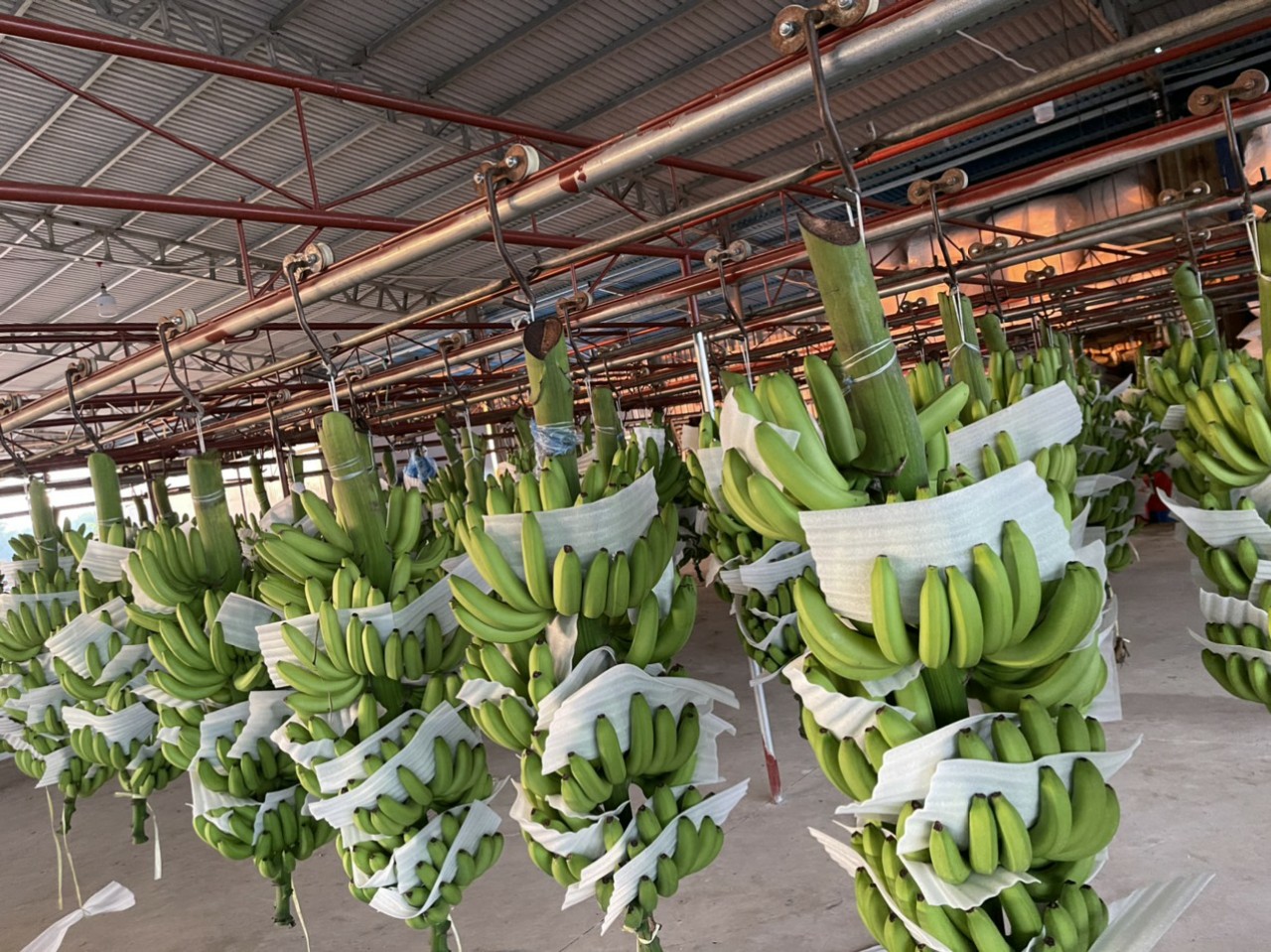Agricultures, News & Event
Urgently developing a Protocol to export eight types of fruits to China
VCN – The Plant Protection Bureau (Ministry of Agriculture and Rural Development) is urgently coordinating with the General Administration of Customs of China to negotiate technical exchanges and develop protocols for eight types of traditional fruits exported to the Chinese market.
The frequency of inspection depends on level of pest risk
On the issue of phytosanitary measures for fruit exported to the Chinese market, recently there has been information that there is a big difference in the proportion of goods subject to quarantine between Vietnam and other countries because of the delay in quarantine negotiations between Vietnamese and Chinese authorities.
For example, while 100% of Vietnam’s fresh fruit products exported to China are subject to quarantine, this proportion to Thailand only accounts for about 30%.
According to Mr. Hoang Trung, Director of the Plant Protection Bureau (Ministry of Agriculture and Rural Development), this information had no legal basis and was not supplied by the competent authority of the Chinese side to the competent phytosanitary authority (Plant Protection Bureau) of Vietnam.
According to international practice, for phytosanitary activities, there is no regulation on whether goods among countries are exempted, reduced or inspected. All consignments for export must comply with the regulations on phytosanitary procedures for all pests subject to quarantine.
“All shipments subject to quarantine, whether large or small, when exported to countries, including China, must carry out quarantine procedures, there is no exemption or reduction in the sampling rate of shipments. Is it possible in phytosanitary regulations to specify what percentage of sampling is in a consignment (for example, 2% per lot),” the Plant Protection Department’s leader said.
At the online meeting between the Plant Protection Bureau (Ministry of Agriculture and Rural Development) and the Plant and Animal Quarantine Department (General Administration of Customs of China) on the issue of approval and quarantine for fruit entering the Chinese market, Mr. Vuong Ich Ngu, Deputy Director of the Plant and Animal Quarantine Department also said that the inspection rate of shipments would depend on the infection of fruit and could be adjusted depending on the infection situation at each point.
“It must be based on the specific type of fruit and the risk of the pest. For example, with mangosteen, after China signed the Protocol on phytosanitary requirements with Vietnam, the Plant and Animal Quarantine Department had to check whether the enterprise did well and the product met the requirements or not. If enterprises do well, they will be reduced the frequency of inspection by 30%, if they do not do well, they will still check with 80%, even 100%,” Mr. Vuong Ich Ngu said.
Talking to Customs News, Mr. Luong Ngoc Quang, an expert from the Department of International Cooperation and Communication (Plant Protection Bureau), once again affirmed that the frequency of inspection depended on the level of pest risk on the item. The Chinese side would rely on the actual assessment and levels of the pest risk on the items.
Three of types of fruits have signed Protocol with China
Currently, Vietnam has 11 types of fruits that are officially exported to the Chinese market, of which three have signed the Protocol on phytosanitary requirements, including mangosteen, passion fruit, and durian.
Eight traditional fruits of Vietnam exported to the Chinese market (including bananas, mangoes, litchi, longans, watermelons, dragon fruit, jackfruits and rambutans) have not yet signed the Protocol.
“The Plant and Animal Quarantine Department hopes that the two sides can sign the Protocol on these eight fruits so that the Plant Protection Bureau can take measures to manage production, packaging, processing and exporting establishments. standardize products from the beginning. Thus, the Plant and Animal Quarantine Department will make recommendations to the General Department of Customs to reduce the inspection frequency,” said Mr. Vuong Ich Ngu.
On the side of the Plant Protection Bureau, Mr. Luong Ngoc Quang said: “The Plant Protection Bureau is urgently coordinating with the General Department of Customs of China to negotiate technical exchanges and develop protocols for eight types of traditional export fruits.”
According to Mr. Luong Ngoc Quang, the signing of the Protocol would bring many positive results in the long run because the entire trade would be in the contracts.
That would help stabilize output, avoiding traders forcing prices. Of course, if the goods do not meet the quality requirements as signed in the contract, there may also be a situation where the partner refuses to receive the goods.
Source: https://english.haiquanonline.com.vn/urgently-developing-a-protocol-to-export-eight-types-of-fruits-to-china-23377.html

